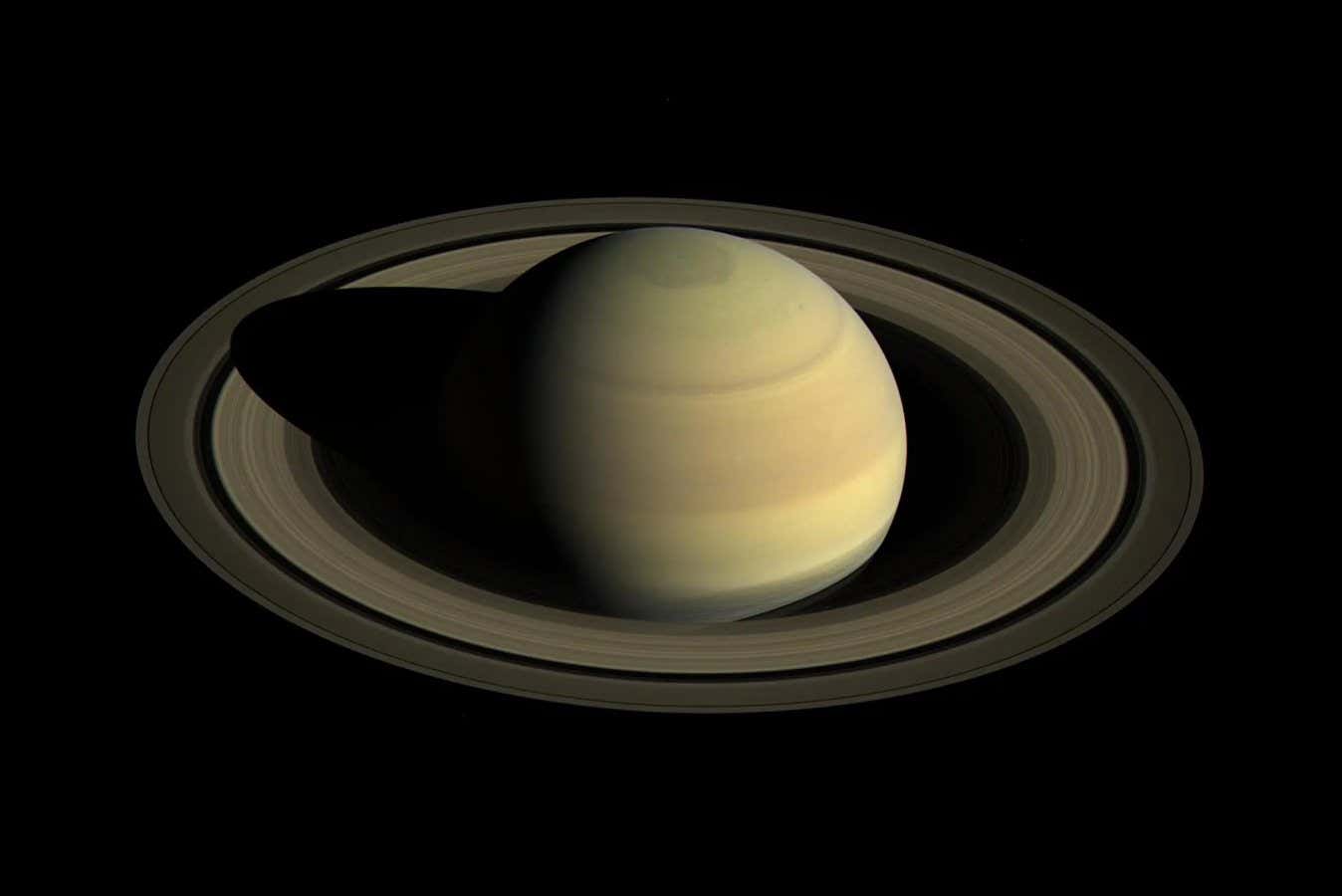The age of the rings that encircle Saturn is under dispute thanks to calculations that show they could have been formed billions – rather than millions – of years ago
By Alex Wilkins
16 December 2024
Saturn and its rings, as imaged by the Cassini spacecraft in 2016
NASA/JPL-Caltech/Space Science Institute
The rings of Saturn could be much older than previously thought and may have formed around the same time as the planet, according to a modelling study. But not all astronomers are convinced, and a researcher who was part of a team that calculated Saturn’s rings to be relatively young argues that the new work doesn’t change their findings.
Read more
Rethinking reality: Is the entire universe a single quantum object?
For most of the 20th century, scientists assumed that Saturn’s rings formed along with the planet, some 4.5 billion years ago. But when NASA’s Cassini spacecraft visited Saturn in 2004, it found that the rings appeared remarkably free of contamination from small space rocks, known as cosmic dust. This pristine appearance indicated they were far younger, with an estimate in 2023 placing them at between 100 and 400 million years old.
Advertisement
Now, Ryuki Hyodo at the Institute of Space and Astronautical Science in Japan and his colleagues have calculated that Saturn’s rings should be far more resistant to cosmic dust pollution than previously thought, so could maintain a clean appearance for a long time. Hyodo and his team haven’t calculated a new age for the rings, but suggest that they could be as old as the planet, as astronomers used to believe.
Hyodo and his colleagues first simulated how high-speed cosmic dust, accelerated by Saturn’s gravity, would smash into the rings. They found that the collision would create such extreme temperatures that the impacting dust should be vaporised. This vapour, after spreading out in a cloud, would then condense into charged nanoparticles, similar to particles that Cassini has observed.
Read more
Saturn now has over 100 known moons – more than any other planet
